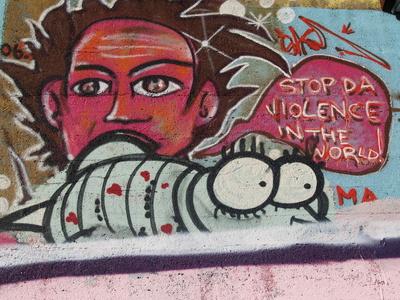School violence is a part of the larger problem of youth violence. Youth violence is bullying, punching, slapping and using weapons, according to the Centers for Disease Control and Prevention. As of 2010, 55.5 million students go to pre-kindergarten through grade 12 in the United States, and another 15 million attend colleges and universities. Violent acts disrupt the learning process and have negative effects on the students.
Death and Injury
In the seven years prior to 2010, 116 students were the victims of homicides at school, according to the CDC. Victims of school homicides tend to be male students in secondary schools who live in inner cities. Most of the deaths occur before school, after school or at lunchtime. Other students can be victims of nonfatal injuries, such as cuts, broken bones, bruises and gunshot wounds.
Emotional Problems
Victims of school violence can also have depression, fear, anxiety and post-traumatic stress syndrome. Some children do not go to school on one or more days during the month because they feel unsafe, according to the CDC. A large number of students go home early to avoid bullies. This interferes with the learning process.
Shame
Some children feel shame for being a victim of school violence. They may be too embarrassed to tell anyone about it, or they may be afraid that they might escalate the violence if they do tell. This fear and shame can lead to self-esteem problems, and in the extreme cases, violent retaliation or suicide, according to the National Center for Children Exposed To Violence.
Becoming Aggressive
Students who are victims of school bullying often feel that nobody is doing anything to help. They are often correct. Teachers and school administrators often either ignore or tolerate bullying. Teachers only intervene in 4 percent of all incidents, according to the Safe and Responsive Schools Project. Students often report having feelings of anger and vengeance.
Worry
School shootings make the news. Even if your child was not at the school where the shooting occurred, she can still feel negative effects. She may hear the graphic details and become fearful and worried that it could happen at her school. You can reassure your young child by telling her that you will make sure she is safe, according to the Dr. Spock website. Older children know that you cannot always keep them safe, especially at school. You can let older children know that school shootings are rare. You can also find out about the child’s safety program at school and go over it with your child.
Photo Credit
- stop…?? la violence image by rachid amrous-spleen from Fotolia.com





